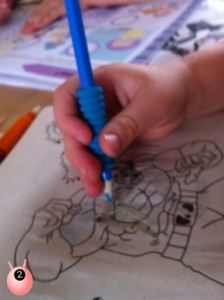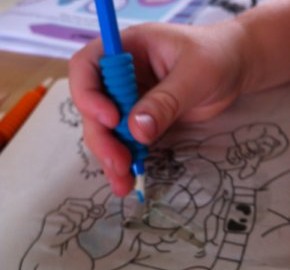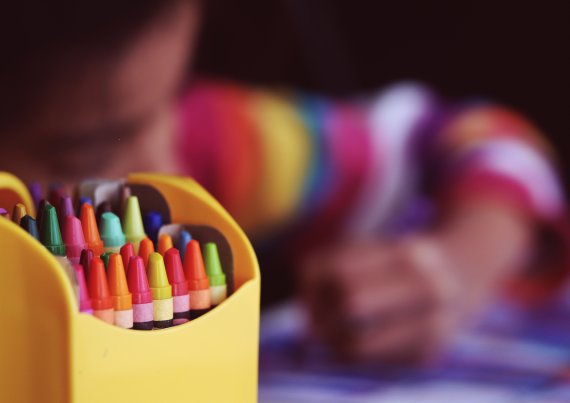A child with Sensory Processing Disorder may experience school life differently to their peers. They may seem disengaged and unable to focus, their attention being everywhere. They may find it difficult to manage their emotions suffering from sensory meltdowns. There are ways to manage and avoid these the important thing is to ensure that they receive the right sensory input for their needs – this is known as their Sensory Diet.
Sensory Difficulties that may occur in School:
Sensory difficulties that may occur in school will vary for child to child, day to day and moment to moment. Unfortunately there isn’t a one size fits all approach to it. There are some basic things that can help though – helping the child to concentrate and feel a valued member of the class.
Teaching Assistants
Teaching assistants are great in guiding children with sensory difficulties, especially if the child is unable to identify their needs themselves. Ideally a one-to-one teacher can really benefit the individual with sensory difficulties by helping to keep the child focused and engaged. Plus the use of enhanced contextual cues (both visual and auditory) may help – or adapting the lesson to their specific interest. Those teaching those with sensory difficulties should keep things simple and don’t try to give them too much information at once.
Offer chewy/vibrating/fidget toys whilst they work (which can also help with oral issues); Give them opportunities to express themselves and keep things as routine as possible, and give warning that something different is going to happen.
A Fidgeting Child
The child with sensory difficulties may keep tapping the hands/feet, as it provides proprioceptive input to the arms/legs – (with the feet – vestibular system too). Ideas to help are allow a ball chair; Wrap theraband (stretchy band0 around the leg of the chair; again a fidget toy/oral sensory tool, or vibrating toy or pillow. Engage in 15 mins proprioceptive play prior to tasks. Allow to stand to do work, or stand on a balance board or bosu ball. Give them Heavy work (like re-arranging the tables/chairs), weighted objects (like a weighted lap pad) and opportunities for movement.
Distracted by Noises
The individual with sensory difficulties may not like it when others are talking or laughing and ask them to stop. This is likely due to a difficult in auditory processing; involving various frequencies in sound pitch and tone changes. Ideas are to let the child leave the room; give them an MP3 player; provide a sensory retreat; give them a bear hug, or deep pressure. Do not insist on eye contact. Provide quiet or a time out space for them for when the noise gets too much, and/or let them use ear defenders. Just generally have an awareness of and take into account the other noise around when they are trying to concentrate.
Teachers and support staff should be aware of how the different senses could be having an impact on them such as an over sensitivity to touch – from others, objects and clothes. Or a need for tactile sensory input and smells (that no-one else finds offensive).
Sensory Problems at Break times
Eating
At lunch times as they are susceptible to choking from eating too quickly or placing too much into their mouths. Again one-to-one support will ensure that they are safe and make sure that they do not stuff too much in – on the other hand if they have an aversion to touch or food (maybe due to the smell or temperature) they can be encouraged to eat.
Lining Up
When lining up they may become over responsive in the tactile sense, getting too close, or feeling that others are too close. They might not like the noise, or the noise may appeal and stimulate them. You can avoid any situations that may arise from this by allowing the child to be at the front or the back of the line – giving them a 50% less chance of being bumped/stimulated. Personally, I think you should go for the back as, in my experience, every child wants to be first and so by allowing someone to always go first may cause a social divide with their peers. You could try compression clothing and/or earplugs. It is important to make sure the other children are aware of the needs of the sensory processing child.
Using the Toilet
Again problems with noise may mean that they are frightened of the hand dryers in the toilets – so simply ensure that paper towels are provided.

What Works For Our Sensory Seeker at School
The main thing with The Sensory Seeker is consistency, understanding and patience. His sensory issues aside he is a good lad that tries hard but doesn’t understand when people break the rules. He is also hyper-mobile in his hands (or something) – which means he is more flexible than he should be, and has trouble holding a pencil. So I got some pencils with the rubber ends to help with his grip. I find him riding his bike or scooter to school helps get him in the right frame of mind, and allowing him to go for a good bounce on the trampoline at the end of the day. He responds well to rewards too now – which is always a bonus.
If anyone else has any tips about helping with school I would love to hear them in the comments box below.



